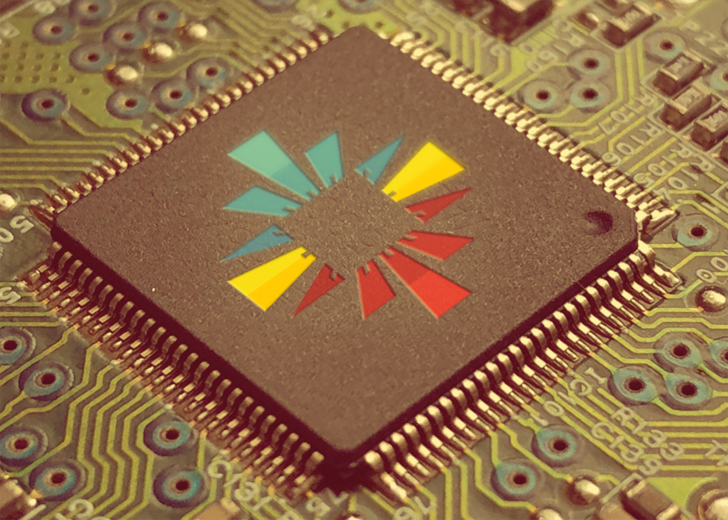Intelligence at the edge (i-EDGE)
€4.5M project to build hardware platform for edge computing using nanomechanical relays

A consortium from industry and academia has been awarded €4.5M by the EU, UK and Switzerland to build a next-generation hardware platform for edge computing using nanomechanical relays.
Computing at the edge of the network instead of transferring data to the cloud for processing can greatly improve efficiency, improve data security and reduce energy consumption. This is especially true for industrial Internet-of-Things (IoT) applications, where embedding some processing capability, i.e. “intelligence”, is very beneficial, but impossible with conventional transistor technology due to high temperatures or radiation levels, or both, at the sensing sites.
In the i-EDGE project, a research team consisting of Microchip Technology Inc. (UK and France), a leading provider of smart, connected and secure embedded control solutions, the University of Bristol (UK), KTH Royal Institute of Technology (KTH, Sweden), Technical University of Vienna (TUWIEN, Austria), Gesellschaft für Angewandte Mikro und Optoelektronik mbH (AMO, Germany), the Swiss Centre for Electronics and Microtechnology SA (CSEM, Switzerland), and SCIPROM Sàrl (SCIPROM, Switzerland) will build processors from tiny mechanical relays with moving parts to withstand these harsh environmental conditions. Because these switches operate fundamentally differently from transistors, they can withstand much higher temperatures and radiation levels without failing, while an open airgap in the off state means no standby power is consumed.
Building on a technology platform developed in the ZeroAMP project www.zeroamp.eu/ , funded by the European Horizon 2020 programme, the consortium in the i-EDGE project will exploit the unique properties of nanomechanical switches to build a “systems-on-chip” where sensors, the interface to the sensors, the processor, and electronic memory for data storage are densely integrated on the same chip.
Dr. Simon Bleiker, researcher at KTH, said: “It's amazing what these tiny nanomechanical relays can offer. At KTH we have developed a cutting-edge technology to build very densely packed nanomechanical relay circuits and protect them inside a tiny vacuum package. In i-EDGE, we’re excited to help fabricate capable nanomechanical devices and operate them in very harsh conditions, like they will experience in the field.”
The consortium expects the i-EDGE project to provide electronic solutions that unlock the full power of the IoT for industrial processing and manufacturing, electric vehicles, asset tracking, and smart environmental monitoring applications, strengthening EU technological leadership on chip design and manufacturing capabilities, supporting the EU Chips Act .
» More info on i-EDGE: visit the i-EDGE website at www.i-edge-project.eu
» Targets for the press release: Electronic Design for Aerospace, Space, Defence, Oil and Gas,
cryogenic Quantum computing, Industry, Automotive and IoT (particularly Industrial IoT – IIoT)
» Key word and phrases for Search engines: NVM, non-volatile memory, ultra-low power, radiation-hardened, FPGA, System-on-Chip, SoC, IoT, IIoT, quantum computing, harsh environments, high temperature, high temperature electronics, MEMS, energy scavenging, the edge, EV, electric vehicles, Automotive, Aerospace, Space, Defence, Oil and Gas
The project is coordinated by Dr. Jens Bolten of AMO GmbH:
Dr. Jens Bolten
AMO GmbH
Otto-Blumenthal-Str. 25
52074 Aachen, Germany
bolten@amo.de
This work was supported by the i-EDGE project, which has received funding from the European Union, the Swiss State Secretariat for Education, Research and Innovation (SERI) and UK Research and Innovation (UKRI) under the UK government's Horizon Europe funding guarantee (grant numbers 10061130 and 10063023).
Views and opinions expressed are however those of the author(s) only and do not necessarily reflect those of the European Union, European Health and Digital Executive Agency (HADEA), SERI or UKRI. Neither the European Union nor the granting authorities can be held responsible for them.




